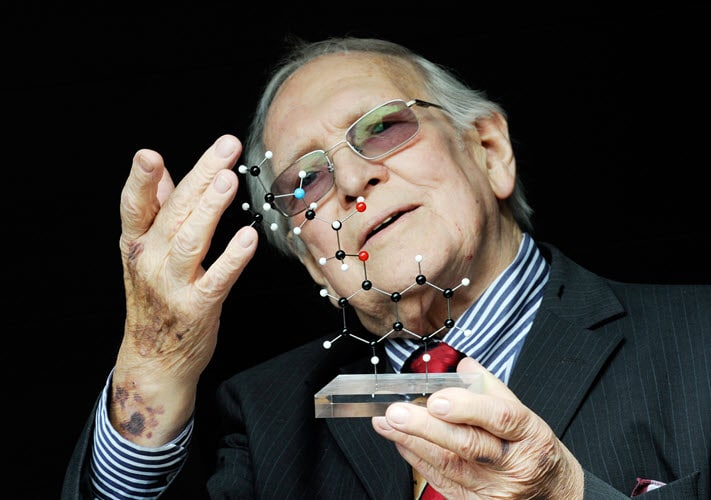James Whyte Black: Revolutionizing Medicine with Beta-Blockers and Histamine Antagonists

James Whyte Black (14 June 1924 – 22 March 2010) was a Scottish pharmacologist who is best known for his pioneering work in developing beta-blockers, a class of drugs used to treat high blood pressure, angina, and heart failure. He was awarded the Nobel Prize in Physiology or Medicine in 1988.
Life and Career
He was born on 14 June 1924, in Uddingston, Scotland. He studied medicine at the University of St Andrews, where he earned his Bachelor of Medicine and Bachelor of Surgery degrees in 1946. After completing his medical studies, he continued his education in pharmacology and earned his Ph.D. from the University of Glasgow in 1950.
During his Ph.D. studies, Black worked on developing new methods for measuring blood pressure, which sparked his interest in cardiovascular pharmacology. After completing his doctorate, he joined the faculty at the University of Glasgow, where he continued his research on the cardiovascular system.
He later moved to the University of London, where he held a chair in pharmacology. Black’s educational background in both medicine and pharmacology allowed him to approach drug development from a unique perspective, which contributed to his success in developing new treatments for cardiovascular disease.
In the 1950s, Black began his research on the sympathetic nervous system and discovered that certain drugs could block the effects of adrenaline on the heart. He used this knowledge to develop propranolol, the first beta-blocker, which was approved for use in the United Kingdom in 1964. Beta-blockers have since become a widely used class of drugs for treating cardiovascular diseases.
Black’s research also helped to establish the importance of understanding the mechanisms of drug action, which has become a cornerstone of modern drug development. His work paved the way for the development of many other important drugs and has had a lasting impact on the field of pharmacology.
James Whyte Black died on 22 March 2010, in London, England.
Award and Legacy
For his contributions to pharmacology, Black was awarded the Nobel Prize in Physiology or Medicine in 1988, which he shared with Gertrude B. Elion and George H. Hitchings. He also received numerous other awards and honors throughout his career, including a knighthood in 1981, and Wolf Prize in Medicine in 1989.
Black’s legacy in pharmacology and medicine is significant. His discovery and development of beta-blockers revolutionized the treatment of cardiovascular disease, which has had a tremendous impact on patient care and outcomes. Beta-blockers are still widely used today and have been credited with saving countless lives. Today, Black is remembered as one of the most influential pharmacologists of the 20th century, and his contributions to medicine and patient care continue to be celebrated.
https://observervoice.com/27-february-tribute-to-george-h-hitchings-14899/
Observer Voice is the one stop site for National, International news, Sports, Editor’s Choice, Art/culture contents, Quotes and much more. We also cover historical contents. Historical contents includes World History, Indian History, and what happened today. The website also covers Entertainment across the India and World.

